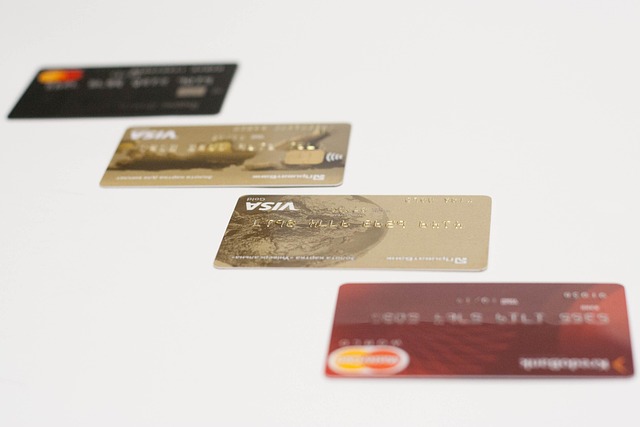Understanding Credit Cards and Online Application Process
Credit cards have become essential financial tools in modern life, offering convenience, security, and purchasing power for millions of consumers. These plastic payment instruments allow cardholders to borrow money from financial institutions to make purchases, with the promise to repay the borrowed amount plus any applicable interest and fees. The credit card industry has evolved significantly, particularly with the rise of online applications and instant approval processes that make obtaining credit more accessible than ever before.

How Credit Cards Work
Credit cards function as a revolving line of credit, meaning you can borrow up to a predetermined limit, repay the balance, and borrow again. When you use a credit card, the issuing bank pays the merchant on your behalf, and you become obligated to repay that amount to the bank. The key difference between credit cards and debit cards is that credit cards allow you to spend money you don’t currently have in your account, creating a debt that must be repaid according to the terms of your agreement.
The credit limit assigned to your card depends on various factors including your credit score, income, employment history, and existing debt obligations. Interest rates, known as Annual Percentage Rates (APR), typically range from 15% to 25% for standard cards, though promotional rates may be lower for qualified applicants.
Credit Card Apply Process Explained
Applying for a credit card involves several steps that help lenders assess your creditworthiness. The traditional application process requires you to provide personal information including your full name, address, Social Security number, employment details, and annual income. Lenders use this information to verify your identity and evaluate your ability to repay borrowed funds.
The application review process considers your credit history, which includes your payment history, current debt levels, length of credit history, types of credit accounts, and recent credit inquiries. A higher credit score generally increases your chances of approval and may qualify you for better interest rates and terms. Most major credit card issuers require a minimum credit score of 650 for standard cards, though some secured cards are available for those with lower scores.
Create Online Credit Card Applications
The digital transformation of banking has made it possible to create and submit credit card applications entirely online. This process typically takes 10-15 minutes and can be completed from any device with internet access. Online applications often include pre-qualification tools that allow you to check your approval odds without affecting your credit score through a hard inquiry.
When creating an online application, you’ll need to provide accurate information about your financial situation. Many issuers use automated systems to verify employment and income information, which can speed up the approval process. Digital applications also allow you to upload supporting documents if required, such as pay stubs or tax returns for income verification.
Apply Credit Card Online Instant Approval Benefits
Instant approval systems have revolutionized the credit card application experience, providing decisions within minutes rather than days or weeks. These systems use sophisticated algorithms to analyze your credit profile and make automated lending decisions based on predetermined criteria. Instant approval doesn’t guarantee you’ll receive the card immediately, but it does mean you can start using your credit line quickly.
The benefits of instant approval include immediate peace of mind about your application status, faster access to credit for urgent purchases, and the ability to begin building or rebuilding your credit history sooner. Many issuers also provide instant card numbers for online purchases while you wait for the physical card to arrive by mail.
| Card Type | Typical APR Range | Annual Fee Range | Credit Score Required |
|---|---|---|---|
| Standard Rewards Cards | 16.99% - 24.99% | $0 - $95 | 650+ |
| Premium Rewards Cards | 17.99% - 25.99% | $95 - $550 | 700+ |
| Secured Credit Cards | 18.99% - 26.99% | $0 - $39 | No minimum |
| Student Credit Cards | 17.99% - 25.99% | $0 - $25 | Limited history OK |
| Business Credit Cards | 15.99% - 22.99% | $0 - $175 | 650+ |
Prices, rates, or cost estimates mentioned in this article are based on the latest available information but may change over time. Independent research is advised before making financial decisions.
Choosing the Right Credit Card
Selecting the appropriate credit card depends on your spending habits, credit profile, and financial goals. Rewards cards offer cash back, points, or miles for purchases but typically require good to excellent credit. If you’re new to credit or rebuilding your credit history, secured cards require a security deposit but can help establish positive payment history.
Consider factors such as interest rates, annual fees, rewards programs, and additional benefits like purchase protection or extended warranties. Many cards offer introductory promotions such as 0% APR for balance transfers or new purchases, which can provide significant savings if used strategically.
Credit cards serve as valuable financial tools when used responsibly, offering convenience, security, and the opportunity to build credit history. The online application process has made obtaining credit cards more accessible, with instant approval systems providing quick decisions for qualified applicants. Understanding the application process, comparing different card options, and using credit responsibly can help you make the most of these financial instruments while avoiding common pitfalls like high interest charges and debt accumulation.




